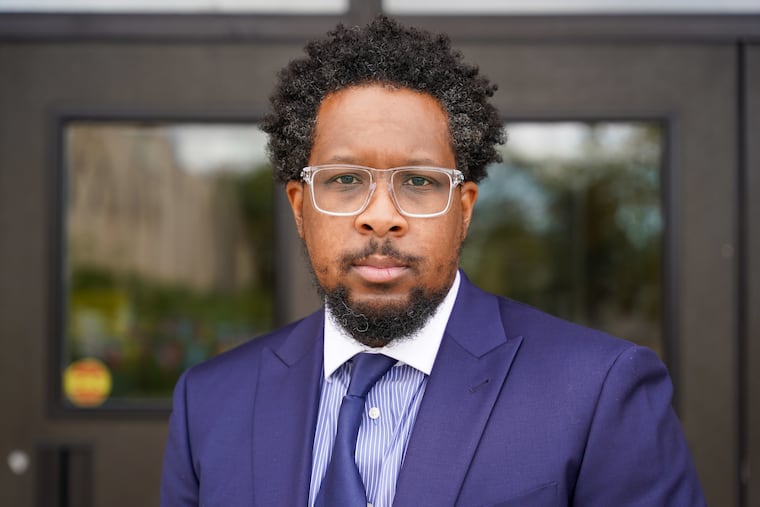Yes, Juneteenth ended slavery, but for many Black people, life didn’t change
Until recently, I hadn't reckoned with the final words of the "Juneteenth" order that freed slaves in Galveston, Texas, and how they ensured that enslaved people wouldn't fully escape bondage.

Juneteenth is the true day of independence in the United States, a holiday that was long overdue for national recognition. It is a recognition of the many African peoples who marched from plantations to the military to fight in securing their freedom and that of their kinfolk and skinfolk alike.
It is also important that the order decreeing that slaves were free was read in Galveston, Texas. The city that became the center of Juneteenth celebrations was once a major port for trafficking Africans. Around the time the order arrived, Galveston was also the biggest city in Texas, acting as a commercial hub within the Confederacy.
Before the Civil War, almost every Black person in Galveston was enslaved, the result of a de facto law from 1836 that banned free Black people from residing in the entire state. So it was no accident that the arrival of 2,000 Union troops on June 19, 1865, to announce all slaves were free — the moment we commemorate on Juneteenth — happened in Galveston.
However, a recent piece written by historian Peniel Joseph has caused me to rethink the meaning of General Order No. 3, the order issued by Union soldiers that fateful day in Galveston. The first part reads:
“The people are informed that in accordance with a Proclamation from the Executive of the United States, all slaves are free. This involves an absolute equality of personal rights and rights of property, between former masters and slaves, and the connection heretofore existing between them, becomes that between employer and hired labor.”
But it’s the last part that I hadn’t totally reckoned with:
“The Freedmen are advised to remain at their present homes, and work for wages. They are informed that they will not be allowed to collect at military posts; and that they will not be supported in idleness either there or elsewhere.”
The newly freed Black people were being “advised” to remain with their captors — which tells me that although the relationship between enslaver and enslaved changed, it only changed in name. Employer and hired labor had the same connotation as the aforementioned masters and slaves: a relationship of economic exploitation that emancipation had no intention of changing.
» READ MORE: Why I celebrate — and mourn — what Juneteenth represents | Solomon Jones
Newly freed Black people were told they wouldn’t be allowed to join the military. But that is what happened during the Civil War, and Black participation was crucial to the Union victory. General Order No. 3 also noted that the military wouldn’t “support” the idleness of Black people — a continuation of ordinances to control the movement of enslaved people and a foreshadowing of vagrancy laws, also known as Black codes, designed to restrict the freedoms of Black people so that they would remain a source of cheap labor long after slavery was over.
What the June 19, 1865, declaration amounted to for the formerly enslaved was the freedom to work for wages, and nothing more. Whether African people were to be enslaved or employed, racial capitalism remained the vehicle for American economic growth.
This rationale was favorable to former enslavers. While some former Confederates fled to Mexico and Brazil with money and arms, those who remained were “free” to restore the old order. For example, the former mayor of Galveston — also a Confederate — actively rounded up “runaways” with the intention of returning them to their owners (now, technically, employers).
Despite all of this, Black people resisted.
Despite all of this, Black people resisted.
As soon as Union soldiers arrived to implement their definition of freedom, many African people fled their plantations. They left to reunite with their families (split as a result of enslavement) and get out from under the thumb of their captor. Importantly, they left to purchase land to farm themselves; in an agrarian society — as the former Confederacy was — independence (and growing wealth) could only happen with ownership of property.
My ancestor, Adam Jakes, who served in the Civil War, was one such person. After the war, he purchased 100 acres of land in Decatur County, Ga.; 20 acres remain in our family’s possession.
Juneteenth is a reminder that Black freedom comes at a risk to Black life because Black freedom is a strike at the white settler state.
This is relevant to both history and the teaching of history. Teaching Black history is a strike against the whitewashed version of historic events. It shows the truth of Juneteenth, of how, despite the monumental shift of abolishing slavery, for many Black people, little changed.
Most importantly, teaching Black history is a strike against white supremacy. Why else would there be such a strong “whitelash” against it?
Rann Miller is an educator and freelance writer based in southern New Jersey. His Urban Education Mixtape blog supports urban educators and parents of children attending urban schools. Miller is also the author of “Resistance Stories from Black History for Kids.” @RealRannMiller